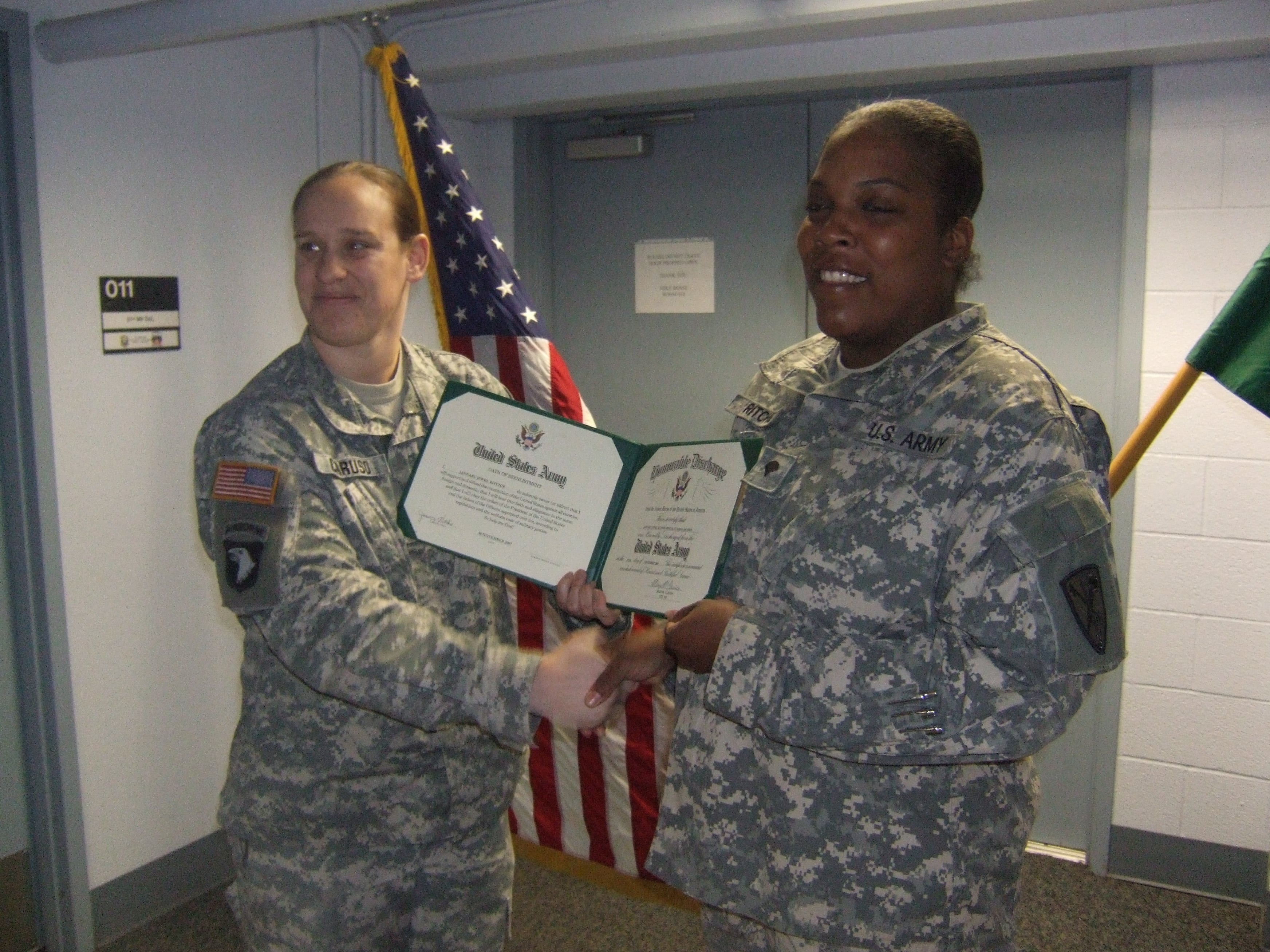Rebekah Moani Daniel arrived at Naval Hospital Bremerton in Washington state with her husband, Walter Daniel, on March 8, 2013, to bring the couple's new baby into the world. And at 3:38 p.m. the following day, she did just that, giving birth to a healthy daughter, Victoria, in what seemed to be a nearly textbook delivery.

Navy Lt. Rebekah Moani Daniel, 33, died in 2014 after bleeding to death following the birth of her daughter. She was a labor and delivery nurse at Naval Hospital Bremerton, Washington, where she died. Her husband, Coast Guard Lt. Cmdr. Walter Daniel, is raising their 3-year-old daughter, Victoria.
Photo Credit: Courtesy of Walter Daniel
But within four hours, the 33-year-old Navy lieutenant was dead, never having held her newborn child.
A labor and delivery nurse at Bremerton, Daniel was surrounded by trusted co-workers, so when she began bleeding profusely, her cadre jumped to, immediately administering drugs to staunch the flow.
But the postpartum hemorrhaging didn't ebb. And from there, the response devolved. According to court documents, stronger drugs were administered but failed. A balloon device that could have halted the bleeding was employed too late. Within two hours of giving birth, Daniel had lost about 1-1/2 quarts of blood — three times the average during birth and about one-third the body's volume.
An obstetrician called in to take the case from the delivery doctor — a family practitioner — waited to order a blood transfusion; court documents said the potentially life-saving measure was ordered nearly 90 minutes after the standard recommended by the American College of Obstetricians and Gynecologists.
By the time Daniel received the transfusion, her heart rate had become erratic and bodily systems were shutting down. At some point, the team began CPR. It didn't work.
"Who dies of blood loss in childbirth nowadays in the United States?" asked Daniel's grieving husband, Coast Guard Lt. Cmdr. Walter Daniel. "This is called a 'never event' in the medical world. It's not supposed to happen."
Statistics show that two to three women die each day in the U.S. from postpartum hemorrhage, and cases in civilian hospitals routinely result in wrongful death lawsuits. But because Daniel was active duty, her family is barred from taking legal action by the Feres doctrine, the ruling that keeps troops from suing the government for injuries deemed incidental to military service.
Many believe the Feres doctrine, the result of a U.S. Supreme Court decision handed down in 1950, applies correctly to cases involving troops in combat, training and other activities that are part of military service. But critics say it wrongfully protects military hospitals and medical staff from malpractice claims.
Richard Custin, an attorney who teaches legal ethics and business law at the University of San Diego and opposes the application of Feres in medical malpractice, said the ruling should be addressed because it unfairly discriminates against military personnel, essentially stripping them, often unknowingly, of a civil right.
"The Supreme Court needs to go back and revisit Feres," Custin said. "Under Feres, the government can't be sued for injuries that are 'incident to service. 'Incident to service' is a soldier charging a hill who gets injured and then questions the order. But babies? Birth injuries? That's not incident to service. Having your appendix rupture. That's not incident to service."

The Feres doctrine resulted from a U.S. Supreme Court decision handed down in 1950. While many believe it applies correctly to cases involving troops in combat, training and other activities, critics say it wrongfully protects military hospitals and medical staff from malpractice claims.
Photo Credit: Jon Elswick/AP
Critics also say that shielding the U.S. government from malpractice claims also removes an important driver behind initiatives to hold it accountable for medical practices and procedures.
From 2010 to 2015, 2,111 administrative claims for malpractice were filed against Army, Navy and Air Force medical centers and hospitals, with 254 resulting in medical malpractice lawsuits against the Army and Navy. The Air Force did not provide figures for how many claims developed into lawsuits.
In 2015, 174 "sentinel events" were recorded at military treatment facilities, including at least 32 involving injury to the mother or fetus during childbirth. A sentinel event, according to the not-for-profit organization that accredits hospitals, the Joint Commission, is an unexpected occurrence involving serious injury or death to a patient.
In the past decade, several "sentinel events" that resulted in cases settled or dismissed under Feres included:
- Senior Airman Colton Read, 20, who required amputation of both legs after military surgeons punctured his aorta during gallbladder surgery.
- Aviation Warfare Systems Operator 3rd Class Nathan Hafterson, 21, who died at Naval Hospital Jacksonville, Florida, after doctors gave him a medication that caused a life-threatening fever and then failed to give him a life-saving antidote for hours.
- Marine Sgt. Carmelo Rodriguez, 29, who died in 2007 after a military doctor properly diagnosed a melanoma but didn’t tell him or refer him for treatment.
Assistant Secretary of Defense for Health Affairs Dr. Jonathan Woodson told Military Times that service members give up certain rights when they serve and allowing troops to sue for injuries on duty could create "chaos."
"This doesn't deprive people of a venue for addressing their complaints … we have a fairly robust disability compensation system, so there is a way to compensate people for medical issues that might arise or occupational issues that might cause injury," Woodson said.
Troops and family members say, however, that in some cases, the government compensation system isn't enough. Most recently, a case petitioned to the U.S. Supreme Court by a civilian father whose daughter was injured during birth to an active-duty mother at Fort Carson, Colorado, sought monetary compensation to guarantee lifelong support for the child.
The case, Ortiz v. the United States, had been viewed as having a good chance of being considered by the U.S. Supreme Court, both for its circumstances as well as a federal appeals court's criticism of the application of Feres to the case. But in May, the Justice Department moved to settle, leaving a hole for another Feres challenge. Walter Daniel and attorney Andrew Hoyal believe Rebekah Daniel's case may be the one that prompts the justices to reconsider the doctrine.
"Accountability. That's what lawsuits of this kind are about," Hoyal said. "You have to have some sort of accountability, and right now, military doctors aren't held accountable for their mistakes."
The odds of the court accepting the Daniel case are slim, with roughly 10,000 petitions filed each year and the justices accepting between 75 to 80 cases.
But perhaps the circumstances of the case, which resulted in a service member's death, will prompt a review, Walter Daniel said.
"If my wife had been a civilian, we would have had a really strong case," he said.
Air Force Capt. Heather Ortiz went into labor on March 16, 2009, and was admitted to Evans Army Community Hospital, where she was given a medication for which she had a known allergy, documented in her medical record. When she received Benadryl to counteract an allergic reaction, her blood pressure dropped, cutting off the oxygen supply to her unborn daughter for several minutes. The little girl suffered brain and nerve damage.
Husband Jorge Ortiz filed a lawsuit on behalf of the baby, Isabella, but the district court ruled that Feres applied because Isabella's injury occurred as a result of harm to her active-duty mother.
The 10th Circuit Court of Appeals upheld that decision, albeit reluctantly.

The government has offered a settlement in the medical malpractice case of Isabella Ortiz, picture here with her mother, Air Force Capt. Heather Ortiz. The Ortizes' attorney, Laurie HIgginbotham, says more malpractice cases involving active duty mothers in childbirth are likely to be filed.
Photo Credit: Courtesy of the Ortiz family
"To be sure, the facts here exemplify the overbreadth (and unfairness) of the doctrine, but Feres is not ours to overrule," wrote 10th Circuit Judge Timothy Tymkovich.
Attorneys say the Ortiz case clearly shows discrimination, specifically, against female service members who are unable to sue for malpractice under conditions where civilian military spouses have the opportunity to file a claim.
Laurie Higginbotham, the Ortizes' attorney, said since the 11th Circuit Court of Appeals ruled differently on a similar case involving an active-duty mother, the U.S. Supreme Court should have weighed in on the discrepancy.
But the Ortizes' petition is on hold, pending the outcome of the government's decision in May to settle the case.
"One mom is being absolutely left out to dry and another mom was able to have her day in court. Using Feres against babies of military moms is about the worst thing," said Austin-based attorney Jamal Alsaffar, who represented the plaintiff in the 6th Circuit Court decision.
The Justice Department has not commented on the case as the settlement is under review. But Custin said he believes the government decided to settle the case out of fear that the Supreme Court would consider it.
"It appears to me that the government did not want to risk an adverse ruling," Custin said. "But the fundamental issue remains."

U.S. Air Force Staff Sgt. Dean Witt is shown with his wife Alexis at the David Grant Medical Center, Travis Air Force Base, Calif., after he was left in a vegetative state when his brain was deprived of oxygen due to a mistake at a military hospital. His family is now fighting a law that protects the hospital from a negligence lawsuit.
Photo Credit: AP file photo via Witt family
In the last decade, the justices have refused to hear at least two Feres cases, including one filed by the family of Air Force Staff Sgt. Dean Witt, who died in 2003 after suffering irreversible brain damage after what was supposed to be a routine appendectomy.
When Witt stopped breathing following surgery at Travis Air Force Base, California, medical personnel gave him the wrong medicine and then tried to revive him using equipment designed for a small child. He languished in a coma for three months before he died.
He was 25.
In another case, the husband of Army Spc. January Ritchie sued the U.S. Army over the death of his son in 2006. His wife's command at Fort Shafter, Hawaii, ignored a physician's recommendation she be placed on light duty and as a result, she went into premature labor after participating in grounds cleanup and "battle-focused physical training."
Infant Gregory Ritchie was born on Aug. 26, 2006, 23 weeks into his mother's pregnancy. He lived just 30 minutes.
In a case filed by the baby's father, Ritchie v. the United States, the lower court ruled in favor of the Army, as did the 9th Circuit Court of Appeals, citing Feres. The Ritchies appealed to the U.S. Supreme Court, but the justices declined to hear the case.

Army Spc. January Ritchie went into premature labor with her son Gregory after commanders ignored her doctors' recommendations that she be placed on light duty for a high-risk pregnancy.
Photo Credit: Courtesy of the Ritchie family
"I frankly was surprised that the Supreme Court didn't take the case. It presented an excellent issue in terms of injuries to people who ought to be protected but are not," said Ritchie's attorney, Eric Seitz.
The last decision issued by the U.S. Supreme Court on Feres came in 1987, when the justices overturned an appeals court decision in a 5-4 ruling on a suit brought by the wife of a Coast Guard pilot against the Federal Aviation Administration.
Lt. Cmdr. Horton Johnson was flying a rescue mission in a heavy storm off Hawaii in 1982 when his HH-52 Seaguard helicopter slammed into the side of a mountain. Low visibility prompted Johnson to ask the FAA for radar guidance just minutes before the helicopter crashed. Johnson's wife sued, saying the FAA negligently caused her husband's death, but she lost.
Writing for the dissent, Justice Antonin Scalia suggested that Feres should be reconsidered: "Feres was wrongly decided and heartily deserves the widespread, almost universal criticism it has received."
Yet despite other opinions that indicate Justices Ruth Bader Ginsberg and Clarence Thomas also believe Feres should be reviewed, the court has remained mum.
"When Witt came up for petition, I really thought the Supreme Court would take it," Custin said. "The court needs to go back to Feres and straighten out this 'incident to service' issue — come up with a reasonable definition of it."
Aimee Wriglesworth believes a series of missteps by military doctors killed her husband, Army Maj. Chad Wriglesworth.
Starting well before a deployment to Afghanistan, a slew of Army physicians dismissed Wriglesworth's medical complaints — mainly about discoloration, discomfort and loss of a nail in his big toe — as attempts to avoid or cut short his tour.
Wriglesworth, who joined the Air Force shortly after Sept. 11, 2001, had gone to Iraq as an airman before he transferred to the Army, in a move Aimee Wriglesworth said he made to ensure he could continue serving his country.
But during Chad Wriglesworth's stint in Afghanistan, he developed groin pain and his toenail problem persisted. He frequently sought medical treatment for both conditions. But his doctors' decision to postpone surgery for what they said was a hernia, along with their reluctance to biopsy the toe, proved deadly.
Less than a month after returning home, Wriglesworth was diagnosed with melanoma that had started under his toenail. It had spread in his lymph nodes, adrenal gland, brain and lungs.
"My husband died because he was continually turned away by military doctors when he complained about multiple issues we later found out were cancer," Aimee Wriglesworth said.
She questions why an Army pediatrician was Chad's primary doctor in Afghanistan and wonders why physicians refused to perform hernia surgery.
She believes if Chad had been sent to Kuwait for a hernia repair or his lumps had been biopsied, surgeons would have discovered what actually were tumors.
"It might not have saved him, but it may have given him a fighting chance," Aimee Wriglesworth said.
Wriglesworth believes she has sufficient evidence to file a medical malpractice claim against Army Medical Command but knows Feres stands in her way.
"I want the Army to fix this broken system," Wriglesworth said. "Chad was never angry or bitter after his diagnosis, but he would want this never to happen to anyone else."
In the 1950 Feres decision, the U.S. Supreme Court decided that the Federal Tort Claims Act, the law that allows citizens to sue the government for wrongs done by federal employees or agencies, does not apply to military members.
The Feres decision actually resulted from three separate cases under the FTCA, including one filed by the widow of Lt. Rudolph Feres, who sued the Army for negligence after her husband died in a barracks fire caused by a faulty heating system.
The other two cases were medical malpractice suits, including one in which a soldier sued after a 30-by-18-inch towel, emblazoned with "Medical Department U.S. Army," was found in his abdomen eight months after surgery in a military hospital.
The Supreme Court ruled the government is not liable for injuries sustained on active duty or resulting from the negligence of others in the armed forces, adding that the ruling was needed to ensure that Congress was not "burdened with private bills on behalf of military and naval personnel."
The court reasoned that a "comprehensive system of relief," including disability payments from the Veterans Affairs Department and compensation," has been established to care for injured individuals.
It's an argument the Defense Department uses today.
A Navy Bureau of Medicine spokeswoman compared Feres to workers compensation laws that bar employees from suing their employers for injuries incident to employment. Employees are guaranteed medical care and disability compensation in most cases but cannot sue.
"The only real difference is that military members are considered to be on duty status around the clock and are covered by the disability system for virtually all injuries," Navy Medicine spokeswoman Jessica Alexander said.
When a military service member dies on active duty, spouses can receive a $400,000 Servicemembers Group Life Insurance payment, health care, a monthly stipend of at least $1,154 under Dependency and Indemnity Compensation or more if they have children, and, for post 9/11 troops, a full scholarship for 36 months of school.
Their children also are eligible for scholarships and Social Security payments.
Walter Daniel has filed a lawsuit seeking millions for the death of his wife. But he says the fight is not about money. Aimee Wriglesworth agrees.
"It just needs to be exposed that service members have no recourse when it comes to malpractice," Walter Daniel said. "My hope is that another military family won't have to go through what we've gone through."
"I would live in a box to have Chad back," added Aimee Wriglesworth. "Money doesn't make up for bad health care."
A 2014 military health system review found that military hospitals and clinics largely provide health care on par with the private sector. But the investigation also found disparities in care, with eight of 17 hospitals reviewed having higher-than-acceptable surgical complication rates and worse-than-expected mortality rates at four major medical centers.
From 2010 to 2015, Navy hospitals saw 355 claims filed against them, resulting in 97 lawsuits; the Army had 1,277 claims, including 157 lawsuits, while the Air Force had 479 claims.
The Air Force also has single service jurisdiction over tort claims arising in Japan, so its figures include 20 claims against U.S. Navy clinics in Okinawa and Japan.
According to the services, the figures reflect the actual claims filed but not the number of incidents of alleged malpractice, since some of the claims were filed by multiple family members for the same incident.
Critics say the figures also don't reflect the number of potential malpractice cases, since the Feres doctrine dissuades family members from considering filing a claim and stops lawyers from taking cases.
"Some family members don't bother and we've had to turn so many of these cases down because we know they won't go anywhere [because of Feres], said Hoyal, Walter Daniel's attorney.

Victoria Daniel, 3, is being raised by her father, Coast Guard Lt. Cmdr. Walter Daniel, following the death of her mother and his wife, Navy Lt. Moani Daniel, at Naval Hospital Bremerton, Washington, while she was in labor.
Photo Credit: Courtesy of the Daniel family
Attorney Jamal Alsaffar said Feres actually hurts the quality of military medical care because it shields physicians from lawsuits that would hold them accountable for their mistakes.
He added that extending it now to include babies born of military mothers is patently unfair.
" 'Injustice' doesn't cover it. It's cruel," Alsaffar said.
Walter Daniel now lives near San Francisco where he is raising his daughter alone. He said his wife's death has affected his career, as he no longer is able to accept assignments that would take him away from his child. He added he is waiting for the results of any investigation by the hospital, which blamed Daniel's death on a rare condition called an amniotic fluid embolism that Daniel said his wife didn't have.
He also is still waiting for an apology.
"Military families place their trust and confidence in these doctors. They should be held accountable," he said.
Aimee Wriglesworth received one apology — but only after she bumped into one of Chad's doctors accidentally at Walter Reed National Military Medical Center in Bethesda, Maryland.
"The hardest thing for me to live with is that this could have been prevented."
Patricia Kime covers military and veterans health care and medicine for Military Times. She can be reached at pkime@militarytimes.com.
Patricia Kime is a senior writer covering military and veterans health care, medicine and personnel issues.




